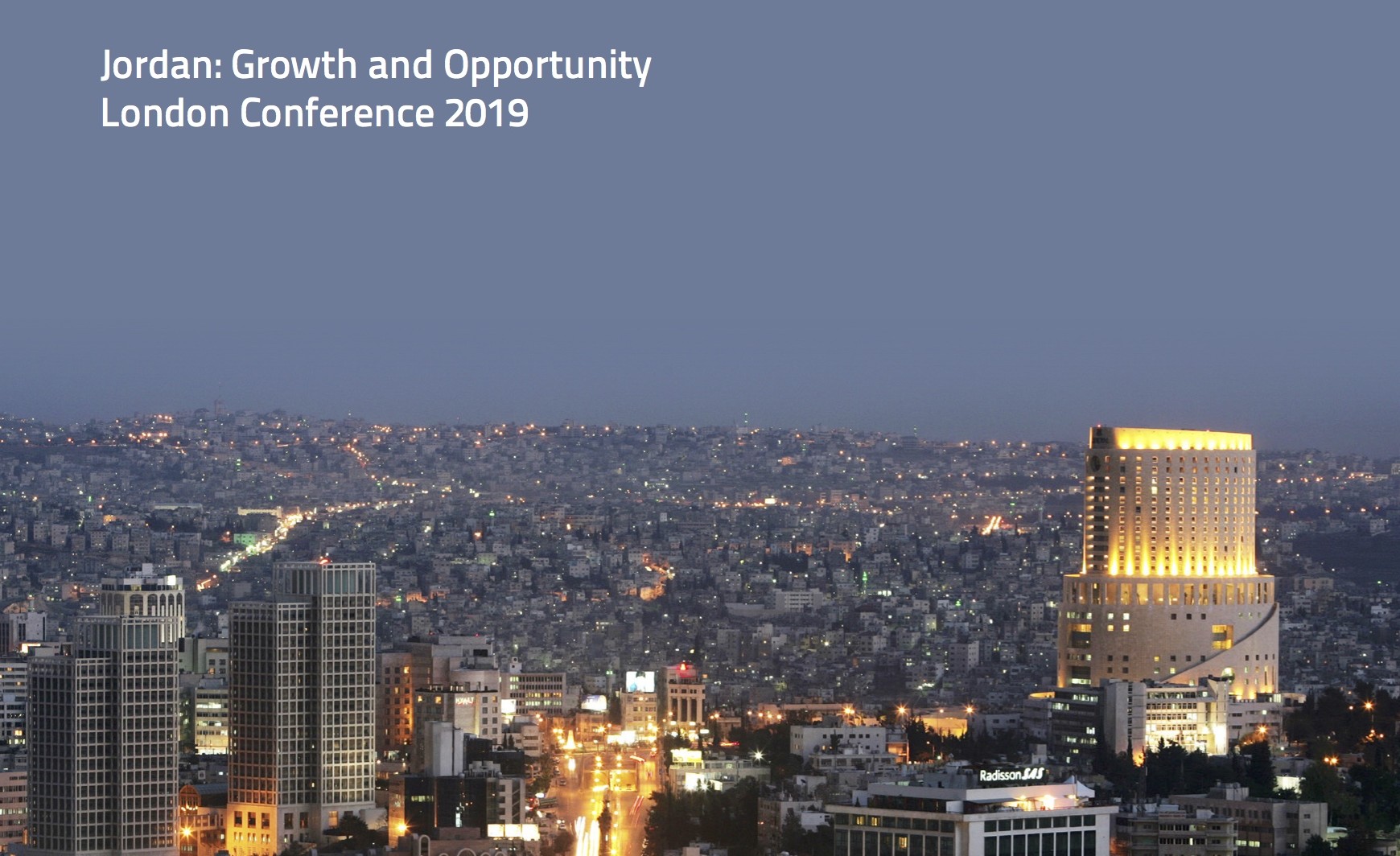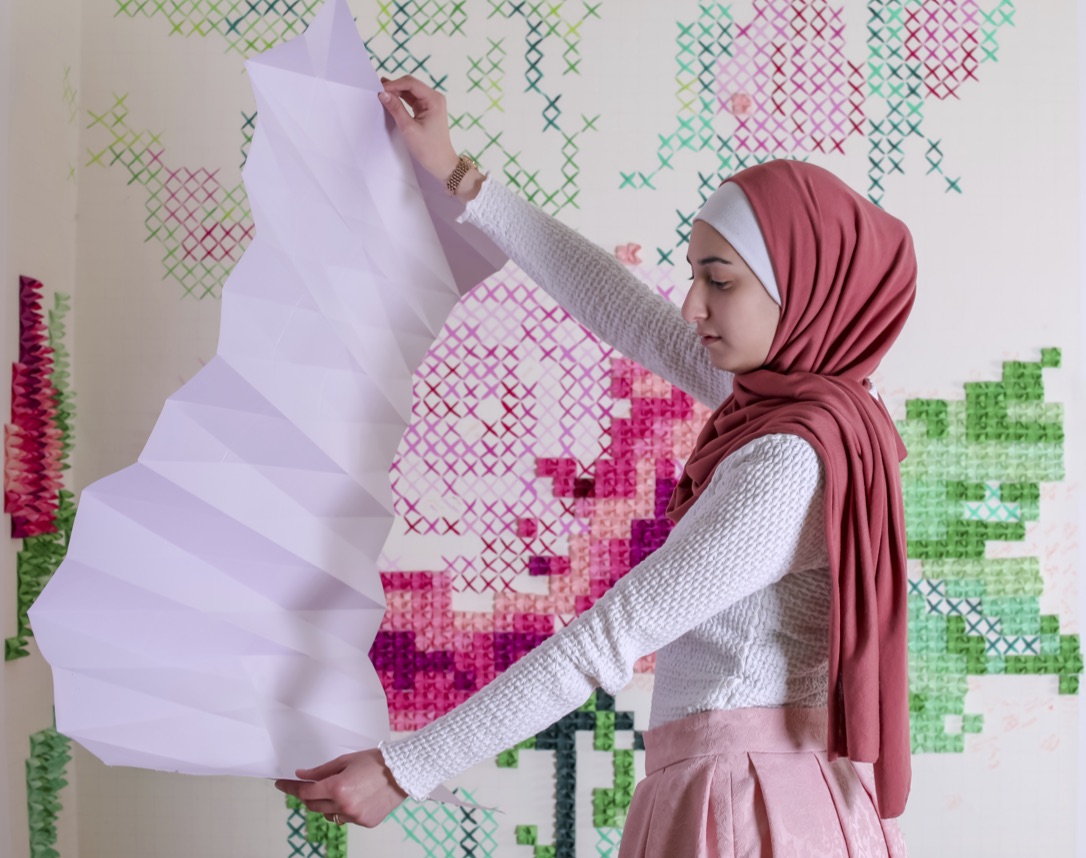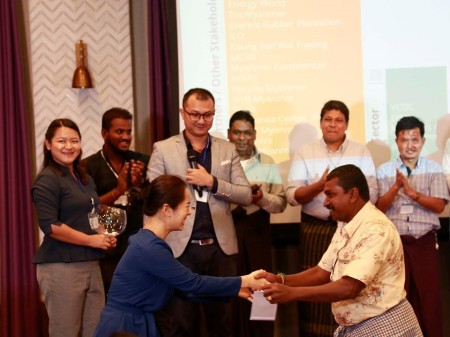At Building Markets in Liberia we believe that job creation can be a powerful tool for peace. Increased employment decreases poverty, and many argue that countries with lower rates of poverty are less prone to conflict. But poverty reduction in post-conflict states takes more than just jobs; it requires gender equality, environmental justice and social inclusion of marginalized groups. In other words, business development should incorporate tenets of social entrepreneurship. This is even more important in a country like Liberia, which despite economic growth averaging 7.8% every year since 2006, still has a population in which 78% of Liberians remain in vulnerable employment and 63.8% live on less than $1 per day. Peace and stability remain far from entrenched.
As Liberian business owners realize the power of their economic impacts, many are eager to explore new opportunities to go beyond private gains and create social value. Three such Liberian innovators, profiled here, have built their businesses around social impact and peacebuilding values. Their efforts, with Building Markets’ support, are a fundamental contribution to continued peace in Liberia.
Martha Partor, Community Sustainable and Educational Empowerment Organization (COSEO)
When Martha Partor was a refugee in Guinea during Liberia’s civil wars, she saw first-hand how detrimental the lack of job opportunities was to her life and the lives of other Liberian refugee women. “We [the female refugees] didn’t want to be begging,” she said. “I saw that the women had a lot of potential, just no opportunities.” Martha decided to create her own.
When Martha returned to Liberia, she organized COSEO, a locally-sourced food packaging company that sells a variety of products, including cassava leaves, palava sauce, dried fish and snails, kaytaley sauce and peanut butter.

Many COSEO employees do not have high school degrees, but Martha refused to let their educational gaps keep them from accessing business education. She offers her own intensive training programs for Liberians to gain the appropriate skills in food packaging to contribute to COSEO’s work and to better grasp business principles. In the last year, 192 women and six men completed the training. She modified the lessons taught in Building Markets trainings to include more diagrams and drawings and use Liberian English to make them more accessible to individuals without formal education.
Martha also tries to advance gender equality in Liberia by teaching that women’s financial independence doesn’t have to rival the man’s, but rather, employed women should be seen as supporting men’s work. “A wife can walk shoulder to shoulder with her husband. We say to men, ‘If a wife can’t drive and her husband gets sick, she can’t take him to the hospital. If she can drive, he can be treated and they will both be healthy,’” Martha explained. “Women and men can support each other and can strengthen the family together.”
Martha’s goal to encourage and support more female entrepreneurs seems to be working. “Some of my employees have created their own side businesses,” Martha said. “I give the women access to COSEO’s machinery…when everyone sees the value in everyone else there will be peace.” Martha is eager to have female business competitors. She knows their presence in the market means a higher employment rate, reduced poverty rates and a stronger Liberian economy.
Elfreda Mayson, Jola House, Inc.
Due to the disruption of education during the 14-year civil war, many Liberians lack the skills and knowledge needed to qualify for the few existing jobs. Upon returning to Liberia after living in the US during the conflict, Elfreda Mayson saw that returned refugees—particularly women—needed education to qualify for employment. She committed to applying her MBA and degree in interior design to benefit the rebuilding of her country and contribute to women’s empowerment and peacebuilding.
Elfreda opened Jola House, a female operated sewing enterprise, in 2011. The company reinvests a portion of its profits into its sewing training program. The most recent training lasted six months and offered its 25 participants a stipend.

One Jola House employee said that when she returned to Liberia after living in Ghana as a refugee, she had no job options. While sharing her sister’s home, she struggled to support her three children. “The biggest challenge I faced was how to gather enough money for rent and food,” she said. “I had no job, but I had the desire to provide for my family.” Jola House enabled her to earn a living to feed her family while learning employable skills.
Not only is Jola House providing skills and salaries to its 21 employees, the enterprise is also changing Liberia’s workplace culture by providing a safe haven for female employees. Before coming to Jola House, one employee had been at a male-dominated company. “The workplace felt aggressive,” she said. “I was uncomfortable there.” Jola House recognizes that jobs for Liberian women must be accompanied with gender-focused support. When these are combined, they make for a powerhouse of productivity, job satisfaction, financial stability and sustainable peace.
Alphonso Kamara and Agnes Kamara, Environmental Services Enterprise
Monrovia, Liberia’s capital city, suffers from an inadequate waste collection system. Alphonso Kamara believes that environmental sustainability is a crucial element for long-lasting peace in Liberia. “After the war, I saw a huge need in the waste sector. Everyone was throwing waste in the swamp,” Alphonso said. He says many informal, unregistered waste collection services pick up garbage during the night, but they often don’t properly dispose of the waste, and they don’t meet Liberia’s Environmental Protection Agency standards.

In 2011, Alphonso and his wife Agnes founded Environmental Services Enterprise (ESE), a community-based enterprise that does small-scale waste collection for communities and organizations. Alphonso and Agnes used Building Markets trainings to win contracts and grow their business.
Alphonso is proud that in addition to transforming Monrovia’s appearance and its resident’s health, he can offer job opportunities to some of Monrovia’s many chronically unemployed. “We employ Liberians who were refugees, who missed out on school, and who are disabled,” he said. “Some came to ESE with nothing and now they call me and say, ‘Come see my new house!’”
Alphonso knows his city well. He is a friend, partner, and familiar face to many of Monrovia’s residents. Using simple community education and general awareness methods, he seeks to transform cultural attitudes and practices surrounding waste and the environment. “People are frozen in their environmentally harmful and unsanitary ways of disposing garbage. We are ‘defreezing’ people from their old means of getting rid of waste,” Alphonso said. “When this change is complete, we can say to the world, ‘Look, our city is clean.’” Alphonso says a clean city encourages investors and makes people healthier and happier.
Martha Partor, Elfreda Mayson, and Alphonso Kamara are a few of Liberia’s leading entrepreneurs placing social value alongside profit. Building Markets is proud to support Liberian businesses that are implementing their own solutions to Liberia’s social, environmental, and economic challenges and establishing a new culture of social entrepreneurship in Liberia.
Tags : Liberia peace social enterprise social entrepreneurship social impact social innovation
More from this author -
Latest News -



